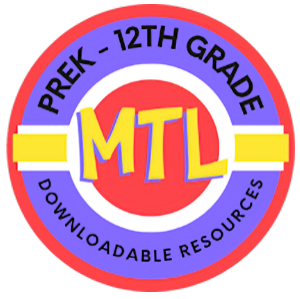Category: Branch of Science
- Home
- /
- Shop
- /
- By Subject
- /
- Science
- /
- Branch of Science
- /
- Page 11
Showing 201–220 of 314 resultsSorted by latest
-
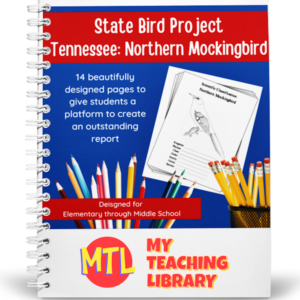 $3.00Buy Now
$3.00Buy NowStudying the state of Tennessee and state symbols? What is the state bird of Tennessee?
This project-based unit is designed to help students study and record information about Tennessee’s state bird: Northern Mockingbird
⭐Included:
– A map page (for the state)
– Scientific classification page
– A page for students to give details about the bird’s physical description, habitat, diet, life span and reproduction
– A page where students will do additional map work to show where in the U.S. the bird lives in addition to migration information
– Coloring page
– Several pages on which students can use for expository and/or creative writing as well as sections in which students may draw.⭐ 14 pages in all and is designed for different levels / abilities.
My Teaching Library has a notebooking set for each of all 50 states. In addition, you can get all of them bundled!
Here are other bird related products you’ll love…
-
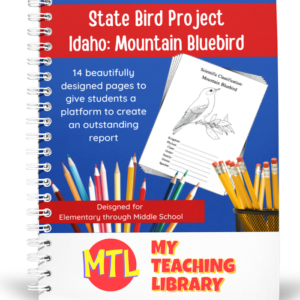 $3.00Buy Now
$3.00Buy NowStudying the state of Idaho and state symbols? What is the state bird of Idaho?
This project-based unit is designed to help students study and record information about Idaho’s state bird: Mountain Bluebird
What type of pages are contained in this set:
– A map page (for the state)
– Scientific classification page
– A page for students to give details about the bird’s physical description, habitat, diet, life span and reproduction
– A page where students will do additional map work to show where in the U.S. the bird lives in addition to migration information
– Coloring page
– Several pages on which students can use for expository and/or creative writing as well as sections in which students may draw.14 pages in all and is designed for different levels / abilities.
My Teaching Library has a notebooking set for each of all 50 states. In addition, you can get all of them bundled!
Here are other bird related products you’ll love…
-
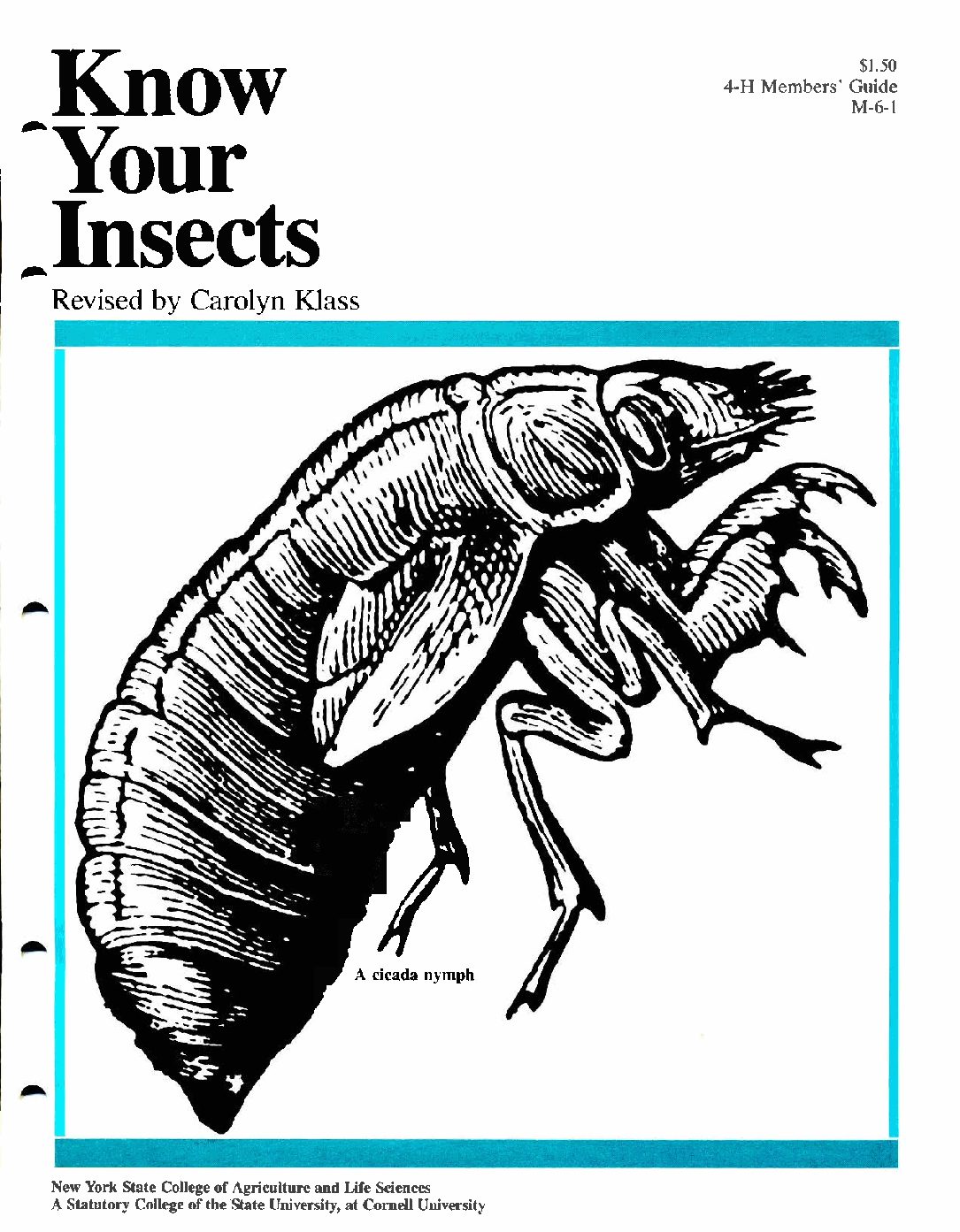 $1.00Buy Now
$1.00Buy NowThis is a small (15 page) old handout to help students learn basics about insects and how to mount them when creating an insect collection.
-
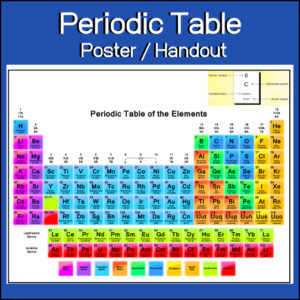 $1.00Buy Now
$1.00Buy NowYou can use this resource as a poster or a handout – the Periodic Table of Elements (with a ‘how to read each element’ visual model).
The table shows all elements through 103 Lr and is color coordinated showing:
– alkali metal
– alkaline earth
– transition metal
– basic metal
– semimetals
– nonmetals
– halogens
– noble gas
– langthanides
– actinides -
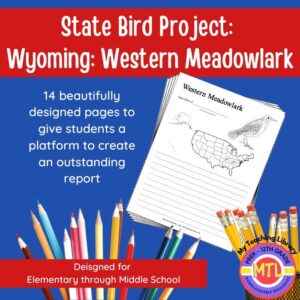 $3.00Buy Now
$3.00Buy NowStudying the state of Wyoming and state symbols? What is the state bird of Wyoming?
This project-based unit is designed to help students study and record information about Wyoming’s state bird: Western Meadowlark
⭐Included:
– A map page (for the state)
– Scientific classification page
– A page for students to give details about the bird’s physical description, habitat, diet, life span and reproduction
– A page where students will do additional map work to show where in the U.S. the bird lives in addition to migration information
– Coloring page
– Several pages on which students can use for expository and/or creative writing as well as sections in which students may draw.⭐ 14 pages in all and is designed for different levels / abilities.
My Teaching Library has a notebooking set for each of all 50 states. In addition, you can get all of them bundled!
Here are other bird related products you’ll love…
-
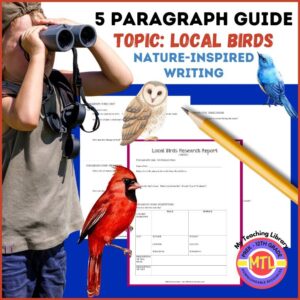 $2.75Buy Now
$2.75Buy NowEasy-to-use, step-by-step, print-and-go guide for students to use as they learn to write a 5-paragraph essay! This nature-themed resource has a local bird focus and guides students as they research, observe and write about one bird species that lives in their local area.
This 3-page resource outlines paragraph by paragraph what to include and gives space for students to write detailed notes.
What will students learn and observe about a bird species before they begin writing?
– where the bird geographically lives
– habitat(s) where they are most likely found
– physical characteristics (coloring, markings, size, bill, feet)
– diet (herbivore, carnivore, omnivore) and where/how they find/gather their food
– predators and self-protection
– interesting factsPlus, this guide will encourage students to reflect on what they have learned.
Once completed, students will be able to take the guide and their notes and write amazing 5-paragraph essays!
Use once as one assignment for one bird of their choice or use again and again to create an entire collection of essays on local birds. Regardless of where you live, these pages will have students observing and learning about local birds.
-
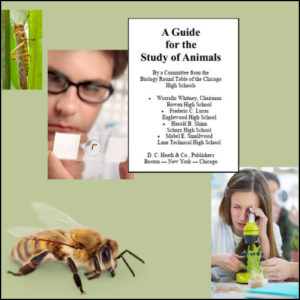 $2.50Buy Now
$2.50Buy NowThis is a downloadable copy of the book. (138 pages)
About the book: A Guide for the Study of Animals is a classic zoology guide (1911) which is intended for pupils in 9th-12th grades. It was prepared by the authors at the request of the Biology Round Table, an association composed of the teachers of Biology in the Chicago High Schools. The book is basically a Biology / Zoology Lab activity guide. Please note that this is not a ‘textbook’ but a lab activity book. (See description for further details.) -
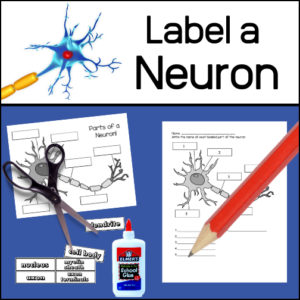 $2.00Buy Now
$2.00Buy NowThis resource is meant to help students learn and remember the basic parts of a neuron (dendrite, nucleus, cell body, myelin sheath, axon and axon terminals).
Includes:- – Poster
- – Center activity
- – 2 Student worksheets
- – Answer Key
-
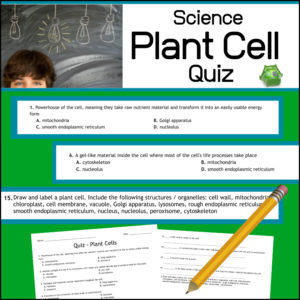 $1.00Buy Now
$1.00Buy NowThe resource is a 15 question quiz that will assess student understanding of the following structures / organelles of a plant cell: cell wall, mitochondria, chloroplast, cell membrane, vacuole, Golgi apparatus, lysosomes, rough endoplasmic reticulum w/ ribosomes, smooth endoplasmic reticulum, nucleus, nucleolus, peroxisome, cytoskeleton
-
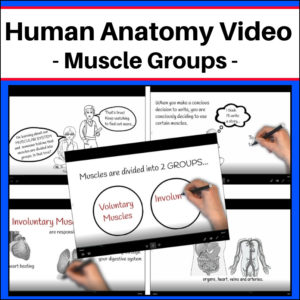 $4.99Buy Now
$4.99Buy NowHuman Anatomy – Muscle Groups Video has been created to introduce, explain and/or review voluntary and involuntary muscles in the human body. Each group is defined, explained and definitions given. This is great for visual learners!
To add student interest, one student is helping another student learn, interesting graphics have been added and upbeat music fills the background. (Music is easily muted if needed.)
Supporting Document: A worksheet (with answer key) that students can complete as they watch!
-
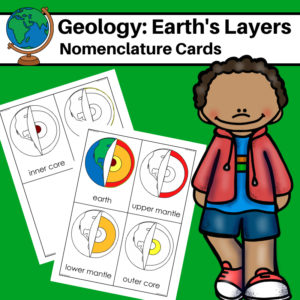 $1.50Buy Now
$1.50Buy NowThis resource, Earth’s Layers – Nomenclature Cards, will help your students learn the names of the layers of the Earth: upper mantle, lower mantle, outer core, inner core, and crust.
I’ve also included a set of blank cards for students to use and label themselves!
-
 $2.00Buy Now
$2.00Buy NowThis is a downloadable copy of the book. (279 pages)
About the book: This out-of-print book will give students details ‘in simple language’ (and illustrations) dealing with steam, electricity, light, heat, sound, hydraulics, optics and other apparatus. (See more in description below) -
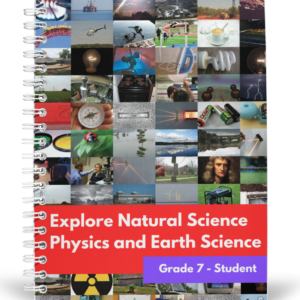 $15.00Buy Now
$15.00Buy NowThis physics and earth science student textbook is designed to use with middle school students (specifically those learning at or ready for 7th grade work). View the table of contents in the description below. Preview video here.
Get the TEACHER’S EDITION here!
Bundle and Save: 7th Grade Science Curriculum Bundle
-
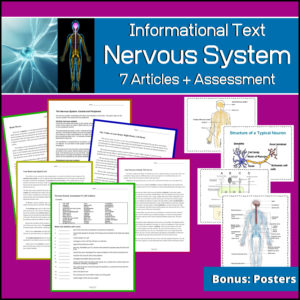 $6.00Buy Now
$6.00Buy NowThis ANATOMY / BIOLOGY / HEALTH resource contains 7 informational text articles (each with comprehension questions followings), 2 end of unit assessments and 4 bonus posters! These articles can be used in any Science related class or in a Language Arts / Reading classroom. Use as standalone mini-lessons or as supplemental activities, homework or in centers.
Flesch-Kincaid Grade Levels for articles range from 5.1 – 7.4
-
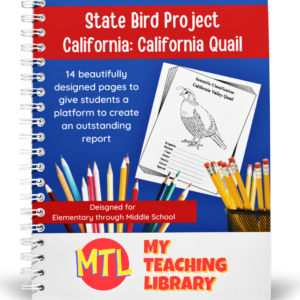 $3.00Buy Now
$3.00Buy NowStudying the state of California and state symbols? What is the state bird of California?
This project-based unit is designed to help students study and record information about California’s state bird: California (Valley) Quail
What type of pages are contained in this set:
– A map page (for the state)
– Scientific classification page
– A page for students to give details about the bird’s physical description, habitat, diet, life span and reproduction
– A page where students will do additional map work to show where in the U.S. the bird lives in addition to migration information
– Coloring page
– Several pages on which students can use for expository and/or creative writing as well as sections in which students may draw.14 pages in all and is designed for different levels / abilities.
My Teaching Library has a notebooking set for each of all 50 states. In addition, you can get all of them bundled!
Here are other bird related products you’ll love…
-
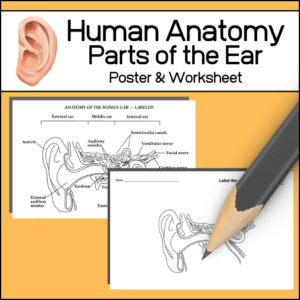 $1.50Buy Now
$1.50Buy NowStudying the human ear? This resource includes…
- – Poster with the following parts labeled (auricle, auditory ossicles, semicircular canals, vestibule nerve, facial nerve, cochlear nerve cochlea, vestibule, eardrum, Eustachian tube, external auditory meatus)
- – Student worksheet to label
-
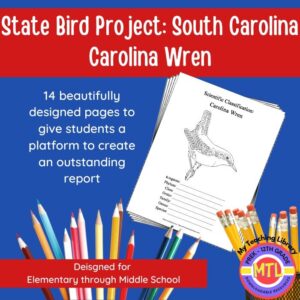 $3.00Buy Now
$3.00Buy NowStudying the state of South Carolina and state symbols? What is the state bird of South Carolina?
This project-based unit is designed to help students study and record information about South Carolina’s state bird: Carolina Wren
What type of pages are contained in this set:
– A map page (for the state)
– Scientific classification page
– A page for students to give details about the bird’s physical description, habitat, diet, life span and reproduction
– A page where students will do additional map work to show where in the U.S. the bird lives in addition to migration information
– Coloring page
– Several pages on which students can use for expository and/or creative writing as well as sections in which students may draw.14 pages in all and is designed for different levels / abilities.
My Teaching Library has a notebooking set for each of all 50 states. In addition, you can get all of them bundled!
Here are other bird related products you’ll love…
-
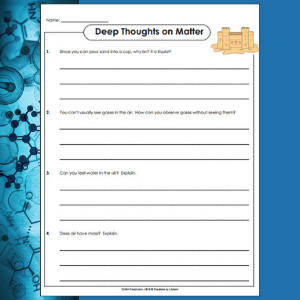 $0.50Buy Now
$0.50Buy NowTaking what they already know about ‘matter’, this one page worksheet will require students to ‘think deeply’ (using critical thinking skills) to answer questions. Answer key also included.
-
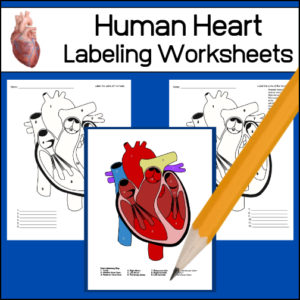 $1.00Buy Now
$1.00Buy NowTwo worksheets for students to label of the human heart. One with a word bank and one without. Answer key provided.
-
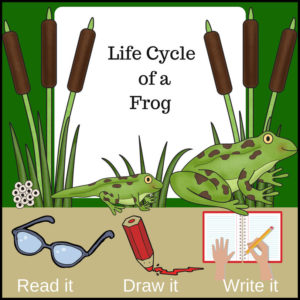 $2.00Buy Now
$2.00Buy NowThis cross-curricular (Science / Literacy – Writing ) product will have students creating their very own mini-books detailing the life cycle of a frog!
Knowledge students will learn:
The book will begin with the female frog laying her eggs near or in water. Students will then learn about the tadpole, what it looks like and what it eats and how it grows and turns into a froglet. They will learn how the froglet has developed the ability to breathe and live on land and then turns into a frog. Does a frog eat different things than a tadpole? Students will find out! At the end of the unit, there is also a coloring page of the different stages from egg to frog.
Students will: — read the text — draw a picture — write (copy) the written text
